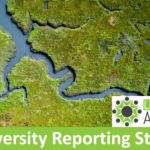
Information about a company’s intangible assets like corporate culture, reputation and environmental sustainability is highly sought after by equity investors, but is rarely found in financial reports. PhD candidate Andy Moniz from Rotterdam School of Management, Erasmus University (RSM) has developed a method to scan online texts for clues about the risks and opportunities of a company’s corporate social behaviour. This is important to analysts and investors, because this behaviour helps predict a company’s future results, he found. Andy Moniz will defend his thesis Thursday, 16 June 2016.
Drawing from his own experience as an equity investor, PhD researcher Andy Moniz says that actionable information about a company’s social behaviour is usually hard to gather and process. Companies’ sustainability reports, if published at all, often serve a mostly symbolic purpose. In practice, they contain little factual or specific information that might help financial analysts and investors with their assessments of a firm’s future performance.
Text analysis
Texts about the intangible aspects of the company written by consumers, journalists, employees and regulators provide a more holistic reflection of how the company is actually behaving with respect to corporate social responsibility. “Actions speak louder than words,” Moniz says. And although such information is publicly accessible online, it is very unstructured, especially compared to the financial reports analysts usually work with.
To overcome this, Moniz developed algorithms that can scan, classify and interpret text across different languages, on relevant websites about a company. While this has been done before with techniques such as ‘sentiment analysis’, Moniz says his methods take more of the words’ context into account to determine what parts of the text are need-to-know information for financial analysts and what information the words contain exactly. The word ‘increase’ for example could indicate a risk or an opportunity, depending on the context: increased unemployment or profit?
Corporate social responsibility
In one of his studies Moniz analysed 105,983 newspaper articles, blogs and magazines published between 1981 and 2014 to expose why and how a company was perceived negatively by writers. This could be for poor corporate social behaviour, such as failing to clear up pollution, or even pending litigation. Apart from providing a useful tool to analyse and interpret large amounts of texts, Moniz provides an objective framework to determine which media allegations are most likely to materially impact a company’s future performance and stock returns.
Carbon footprint
Moniz also developed an algorithm that scans corporate sustainability reports for words that describe environmental performance. After scanning the document, it summarises how transparent and comprehensive the company is reporting about its efforts to reduce its impact on climate change. This can serve as an indicator of a company’s environmental policy. Moniz’ automated technique turns these – at times very technical – reports into valuable information for financial analysts that often do not have a background in earth-sciences.
Corporate culture
Fathoming insights about a firm’s culture and assessing the associated risks and opportunities is hard as an outsider, the researcher points out. Typically annual surveys are conducted to gather data about corporate culture. To automate this process of data gathering Moniz designed an algorithm that studied 417,645 daily employee reviews on Glassdoor, a website that lets employees rate and describe companies.
The algorithm scoured the texts for words that reflect on corporate culture, such as ‘work-life balance’ and ‘career opportunities’. It then compared these to the earnings of the corresponding companies. The results showed that when many employees describe a company in terms of its performance orientation, for example by using words like ‘motivation’, ‘outcomes’ and ‘productive’ in their reviews, the better the future results and growth figures of that company were.
Andy Moniz will defend his dissertation in the Senate Hall at Erasmus University Rotterdam on Thursday, 16 June 2016 at 15:30. His supervisors are Prof. Cees van Rieland Prof. Franciska de Jong. His co-supervisor is Dr Guido Berens. Other members of the Doctoral Committee are Prof. J.P. Cornelissen (RSM), Prof. P.P.M.A.R. Heugens (RSM), and Prof. C.G. Koedijk (Tilburg University).



